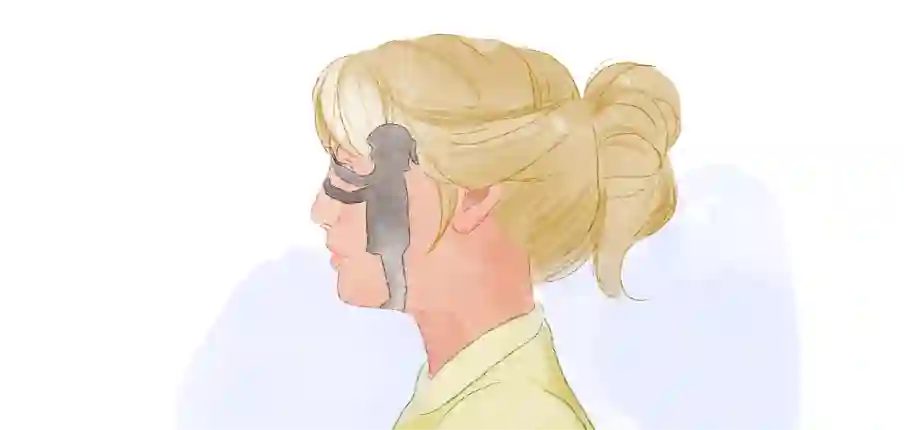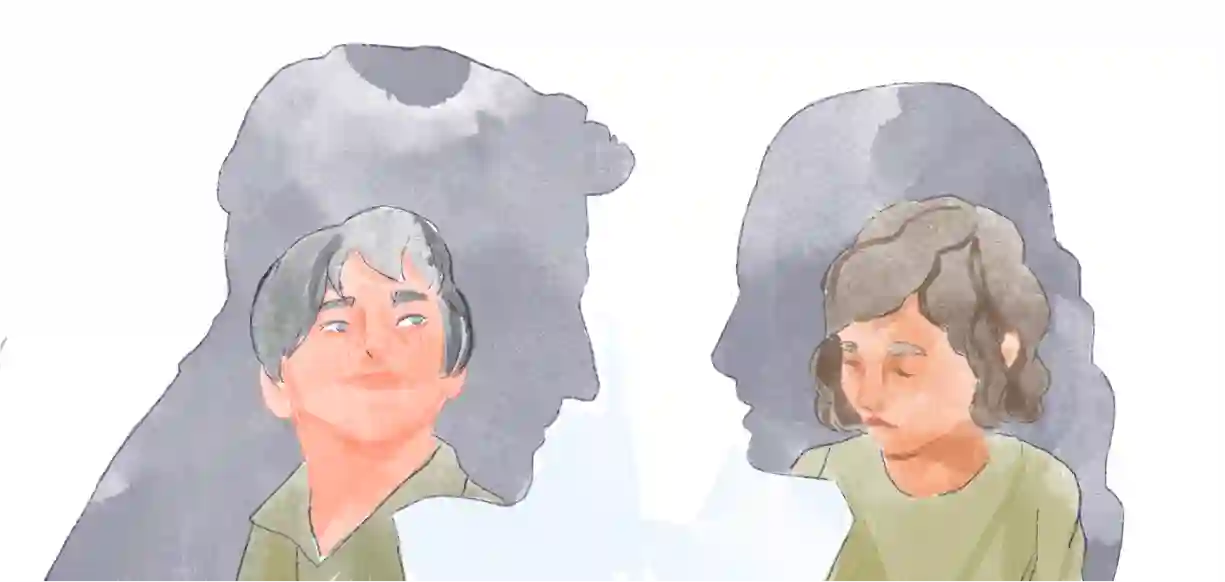Remember those days of building blanket forts, chasing butterflies, and believing anything was possible? Maybe you still get that pure joy out of nowhere, like you’re a kid again? That’s your inner child spirit shining through.
But sometimes, life is not all rainbows and unicorns. We may struggle to express our emotions or feel a sense of unfulfillment. Perhaps you crave quiet when things feel too loud or enjoy getting lost in a craft project for hours.
Years of stress, responsibilities, and maybe even past trauma can make us lose touch with our true selves. Our inner child also carries the burdens we’ve experienced – the times we didn’t feel safe or loved.
Such experiences can wound our inner child, leaving it feeling lost or silenced. If you sense a lack of joy in your life or wonder how past experiences might shape your current emotions, behaviors, and relationships, take our free lost inner child test from Breeze.
Take the Lost Inner Child quiz for free
We all have baggage from the past, right? Sometimes, those old experiences stick with us way more than we realize. But there is always a way to find more joy and take care of your mental health.
Part of that is figuring out how the past affects who you are today. For example, taking this quick lost inner child test might give you some insights. So, let’s talk more about this one.
Understanding the test
Okay, it’s time to begin. Here are 5 steps to get started:
- Find a peaceful spot. Choose a place with no distractions.
- Breathe deeply. Calm your body and mind.
- Be honest in your answers. Take your time and really think.
- Review your results. See what they say about your connection with your inner child.
- Remember: This is for self-discovery.
The Lost Inner Child quiz contains 11 questions. Please record your answers using pen and paper. A positive result does not constitute a formal diagnosis. Please read each question carefully before selecting your answer.
Scoring rules: Each question consists of 2 answers: “Yes” and “No”
Use a 0-1 scale to rate how much you can relate:
- No – 0 points
- Yes – 1 point
Lost Inner Child test from Breeze
This quiz takes about 2 minutes. Answer honestly, and take more time if needed. Good luck!
- Is it difficult to speak up for yourself?
- Have you ever felt uncomfortable showing your sadness or anger?
- Do you try to please people?
- Do you ever feel like you’re not good enough?
- Would you describe yourself as a perfectionist?
- Do you struggle with low self-esteem?
- Are you currently/formally facing any challenges with addiction?
- Do you often have a fear of abandonment?
- Do you put others’ needs first?
- Do you often find yourself being self-critical?
- Do you find it hard to trust either yourself or others?
Here are your results for the Lost Inner Child test
As I promised, that was fast. Now, count how many “yes” answers you have gotten.
0-1 points
If you answered “yes” to even one of those questions, that means your inner child is fine and in good shape. Just focus on this specific question and try to understand the reasoning behind your answer.
Also, here are additional tips to check out:
- Try not to be hard on yourself: Talk kindly to yourself like you would speak to a beloved child. Replace “I messed up again, I’m unworthy” with “Mistakes happen. I’m learning, and that’s okay.” Or instead of dwelling on a bad meeting, say, “Today was rough, but tomorrow’s a new opportunity.”
- Seek simple joys: Engage in activities that made you happy as a child – coloring, playing a simple game, spending time in nature, or cuddling with a pet. You’ll feel much better, and that might be a sign of your inner child healing.
2-11 points
Okay, if you answered “yes” most of the time, it seems your inner child might be holding onto some emotional baggage from the past. Sometimes, those old experiences can pop up in our lives without us even realizing it.
But no worries! This means you can start giving yourself understanding and healing your lost inner child.
Here are some tips on how to heal a lost inner child:
- Journal it out: Try writing about your childhood experiences or how those “yes” answers feel in your current life. Recall these situations and try to reflect on them. This can provide insight.
- Joytime: Make time for activities that help you loosen up and simply have fun. These can be as simple as dancing to your favorite songs, trying a new creative outlet, or baking something delicious!
- Inner child-inspired playlists: Create songs that made you happy as a kid and get you back to that time. That sounds simple, but believe me, it has an undeniable effect.
- Meditation: Find a calm place and try meditating for at least 2 minutes. This will bring you inner calm and help you feel the joyfulness of life.
- Return to childhood interests: What activities did you enjoy as a kid? Maybe you were really into superheroes or zoo animals. Spend a few moments every day returning to what brought you joy as a child. This will help you connect with your inner child.

Is this Lost Inner Child test right for you?
This short test is designed to show how your past experiences might influence your present. The questions can help you spot patterns and emotions you might not realize are rooted in your childhood.
If the results raise some red flags, talking with a therapist can help you reveal these issues and start healing your lost inner child.
Please note: This questionnaire is for informational purposes only. It does not replace a professional diagnosis. If you are concerned about your mental health, please consult a qualified mental health professional.
Okay, but should I trust this quiz?
The inner child trauma test was created with the help of mental health experts to identify potential signs that your inner child needs attention. It’s not meant to label you but to spark curiosity and self-reflection.
Also, it won’t pinpoint a specific issue. It just helps you see if exploring your past could lead to greater self-understanding.
If something in the results jumps out, feel free to bring it up with a therapist and explore it deeper.
FAQ
1. What is a lost inner child?
Let’s start with Robert Jackman, a certified psychotherapist, who explores the idea of the inner child in his book “Healing Your Lost Inner Child.”
He writes, “The lost inner child is a part of you that is emotionally frozen in time. It is “lost” in the sense that you may be oblivious to what will later be obvious signs of communication from this part. Even though this is a part of you, it is lost because it didn’t mature emotionally with the rest of you.”
Simply put, the lost inner child is a psychological concept rooted in the idea that childhood experiences, especially those that are negative or traumatic (childhood trauma), can leave emotional wounds on a child.
These wounds can make it harder for children to connect with their playful, curious, and spontaneous sides. Later in adulthood, it can manifest as less joy, a lack of creativity, or a tendency toward self-criticism and negativity.
What is childhood trauma? Well, it refers to a scary, dangerous, violent, or life-threatening event that happens to a child.
These wounds create a part of ourselves that remains stuck in the past, having a “Why am I feeling lost?” feeling, carrying the pain and unmet needs we experienced as children.
For example, as a kid, let’s say someone was always being picked on, always told they weren’t good enough. They might grow up to be super successful, but inside, they may ask themselves, “Why do I feel like a failure?”
They could be pushing themselves way too hard, trying to prove their worth. It’s like that little kid who was criticized is still in there, somehow running the show.
What are the 7 Signs of a Lost Inner Child?
I like this inner child quote: “The child is in me still and sometimes not so still.” ― Fred Rogers, The World According to Mister Rogers.
Our inner child represents both positive and negative childhood experiences. When childhood trauma remains unprocessed or needs for joy and playfulness are neglected, that inner child feels wounded.
These wounds can sometimes relate to our relationships with our caregivers – what we call the mother wound and father wound.
As adults, we may unconsciously adopt behaviors to protect ourselves but end up ignoring the very things we care about.
So, what are the symptoms we should pay attention to? Here are the most common signs of a lost inner child:
- Too much serious: You struggle to find joy, playfulness, and lighthearted moments. Everything feels like a heavy responsibility.
Your friends could invite you out for a night of karaoke. But instead of seeing it as a chance to relax, you fixate on the work you have to do, how bad your singing voice is, and the potential of getting sick from being out in a crowd.
- Constant self-criticism: This is another sign of the lost inner child. You may have difficulty celebrating your wins and beat yourself up over mistakes, which can lead to constant self-loathing.
Imagine you get a promotion at work, but instead of feeling proud, your inner voice repeats things like, “They just felt sorry for you,” or “They’ll realize they made a mistake soon enough.
- Can’t express emotions: You either suppress your feelings, like being emotionally unavailable, or experience them out of your control, asking yourself, “Why am I so emotional sometimes?”
This is a common situation when your partner asks what’s wrong, and you insist on “Nothing,” even though you’re seething with anger. Later, you explode over a minor, unrelated issue.
- Resistance to vulnerability: When your inner child is lost, being open, honest, and truly seen by others might feel unsafe.
You might have a crush on someone but fear taking the first step. Or, you might hold back in conversations, afraid your words could somehow be used against you.
- Anxious attachment styles: People with possible attachment trauma might need constant validation in relationships (which might also be a sign of abandonment) or avoid intimacy altogether.
For instance, you might text your partner 24/7 asking if they love you and care about you, even when you know they do. Or, on purpose, you might pick partners you know are emotionally unavailable to avoid any real closeness.
- Lack of spontaneity: Along with the lost inner child, this also might be a sign of parentification trauma.
You meticulously plan everything and fear the unexpected. That can make you easily become overwhelmed if a friend suggests a last-minute road trip.
- Self-sabotaging behaviors: You unconsciously undermine your happiness or success.
You may have a job interview you desperately want and are well-qualified for. However, you procrastinate on preparing, show up slightly late, and dress inappropriately.
Well done!
Here we are. I hope this lost inner child test provided some insights you sought and offered greater clarity about yourself.
If you suspect you’re experiencing deeper challenges related to past experiences, please seek professional mental health support for guidance.
Disclaimer
This article is for general informative and self-discovery purposes only. It should not replace expert guidance from professionals.
Any action you take in response to the information in this article, whether directly or indirectly, is solely your responsibility and is done at your own risk. Breeze content team and its mental health experts disclaim any liability, loss, or risk, personal, professional, or otherwise, which may result from the use and/or application of any content.
Always consult your doctor or other certified health practitioner with any medical questions or concerns
Breeze articles exclusively cite trusted sources, such as academic research institutions and medical associations, including research and studies from PubMed, ResearchGate, or similar databases. Examine our subject-matter editors and editorial process to see how we verify facts and maintain the accuracy, reliability, and trustworthiness of our material.
Was this article helpful?



